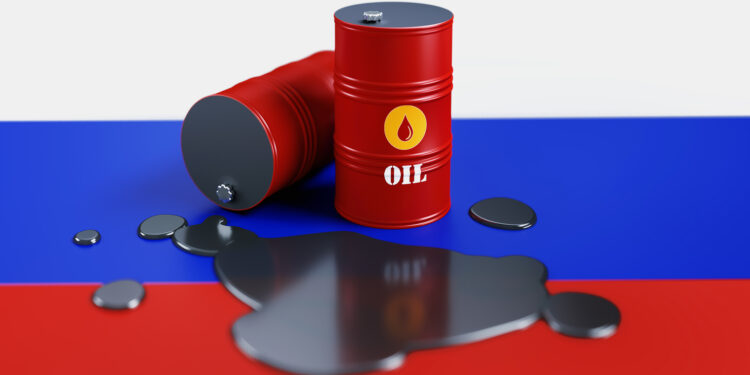In a clear indication that the Kremlin does not expect oil prices to recover in the short term, the Russian government is considering tightening its main “budget base”, a mechanism that is used to build a public budget on the basis of an oil reference price.
According to Bloomberg Agency, from informed sources, which asked not to be identified, Moscow may reduce the referral price for the budget from $ 60 to about $ 50 a barrel starting next year, if global prices continue to decline.
The continuation of the war and the decline in revenues
This trend comes at a time when pressure on Russian public finances is exacerbated by the continuation of the war in Ukraine for the fourth year, amid a sharp decrease in energy revenues, which represents about 30% of the state’s revenues.
Russia has used the budget base for years as a mechanism to protect public finances from the fluctuations of the oil market, so that excess revenues are transferred to the reference price (currently $ 60) to the National Welfare Fund, which is later used to support the budget when the revenue declines.
But with the decrease in the prices of Russian Urals, the Ministry of Finance continued to withdraw from the fund’s reserves, which led to the acceleration of the pace of its depletion.
A sharp contraction with the welfare reserves
Bloomberg data indicates that liquid funds available for spending from the National Welfare Fund decreased to 3.3 trillion rubles ($ 41 billion) in April, compared to 8.4 trillion rubles at the beginning of 2022, before the Russian -Ukrainian war.
The Russian Ministry of Finance also announced last week to double the target budget deficit of 2025 more than 3 times, as a result of low expectations for revenues and oil prices, which imposes additional pressure on public resources.
Trump’s commercial war increases mud
The decline in oil prices, driven by fears of the impact of the new trade war launched by US President Donald Trump, which threatens to weaken global energy demand.
The OPEC Plus group, led by Saudi Arabia and Russia, also decided to abandon its traditional strategy to raise prices, and to increase oil production during June.
Russia, according to a government official, spoke to Bloomberg, on the condition that his name was not mentioned, supported this increase in production in the hope that the volume of exports partially compensated for the losses resulting from low prices.
Under this agreement, Russia will be able to raise its production of crude oil only to 9.16 million barrels per day in June, compared to 8,965 million barrels per day in March, according to informed sources.
Limited options for the Kremlin
The trend to amend the budget base is a difficult choice, because it will require a reduction in government spending at a time when military obligations are increasing, which makes it difficult to pass the decision politically.
Bloomberg believes that these discussions reflect the Kremlin’s awareness that the era of high oil prices may not return soon, which means that easy financing for war and the public budget faces an imminent end, and it must find alternative sources of revenues or entering a financial austerity wave.



